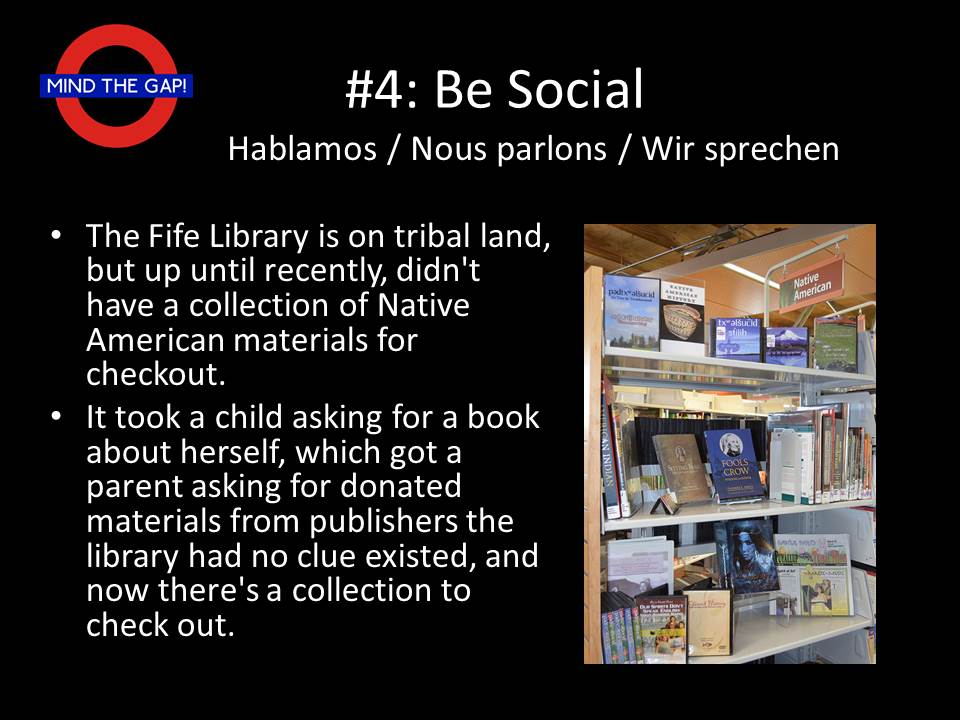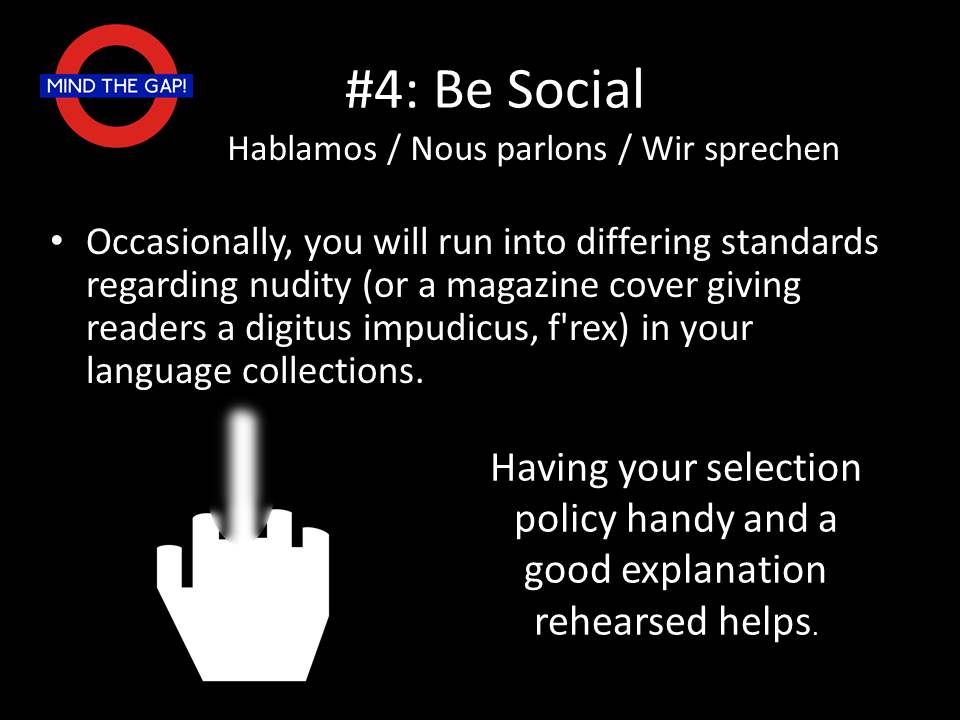
Attracting The Gap is often the task of making sure that the people who aren't coming can see themselves in the library or using library services. For more privileged groups, this is an easy task. For less privileged groups, this is much more difficult, and public libraries are often insufficiently diverse to be able to attract, retain, and avoid violating Wheaton's Law in relation to diverse populations.
It can seem like a Rumsfeldian equation - the unknown unknowns are the most dangerous things, because The Gap tends to exist in those spaces. Every now and then, though, you get lucky and someone actually articulates a problem. Such was the case at the Fife Pierce County Library, which has a very large Native American population surrounding it. A child came into the library and then asked why there weren't any books with characters like them in the books. The library hadn't found books about the local tribes or the stories of the local tribes to have in the collection. Realizing how much they didn't know, the library was able to collaborate with the child's parents and their connections to be introduced to tribal publishers and purchase materials with tribal characters and materials written in the language of the tribe.
The more diverse library staff is, the less likely this is going to be a surprise for the library and a scramble situation, instead of just part of normal library operations.

The greater the diversity in a library community, the more likely there are going to be differences of opinion about what is appropriate for certain types of ages or community members. The public library generally tries to stay neutral in those discussions, except where there are matters of legal obligations, but that doesn't mean that staff shouldn't be ready in case the community wants to engage with the library about their choices of materials, about the language being offered in the teen section, the situations and topics that some community members believe are only for adults, and maybe not even then, or other parts of running a library that someetimes come in conflict with community norms. Solid policy documents and training for staff about the values of the public library and its commitment to intellectual freedom and access may not make the issues go away, but it will help prevent staff from doing or participating in destructive acts based on their personal beliefs in contradiction to the stated and posted policy.